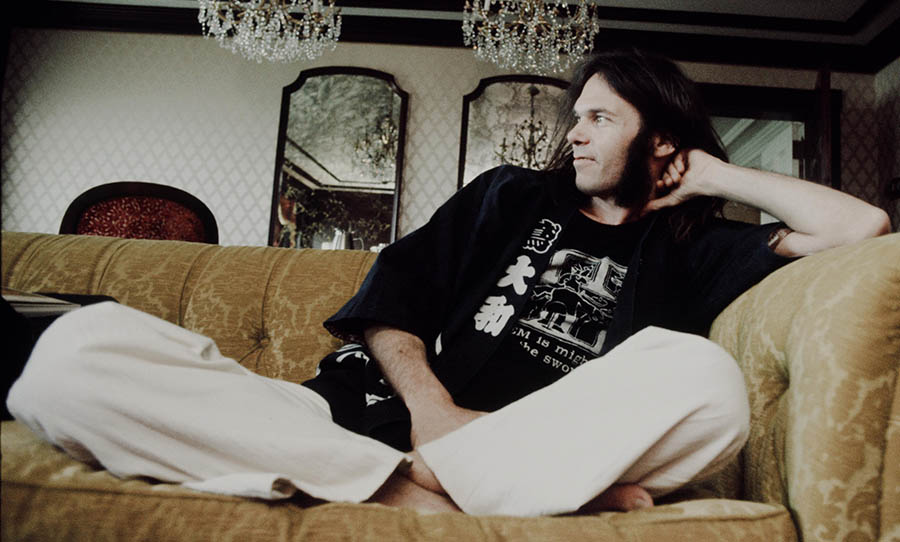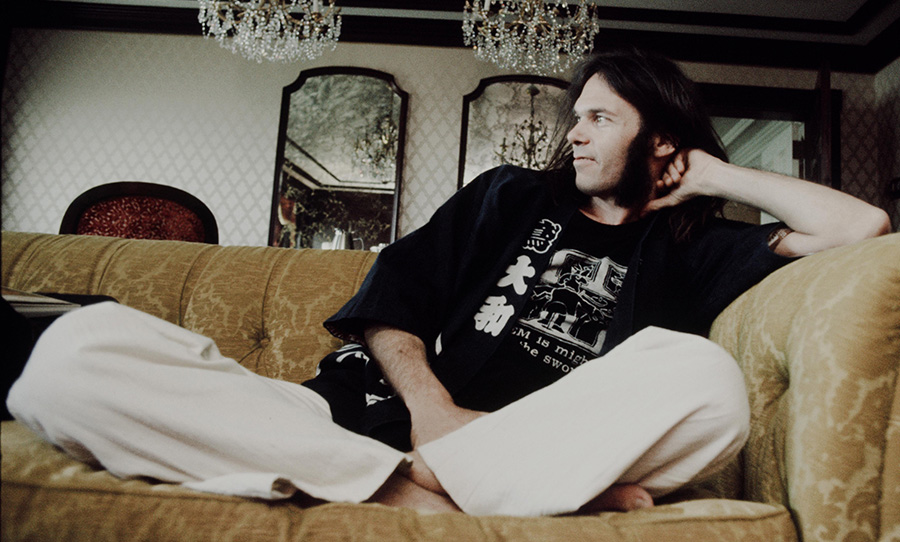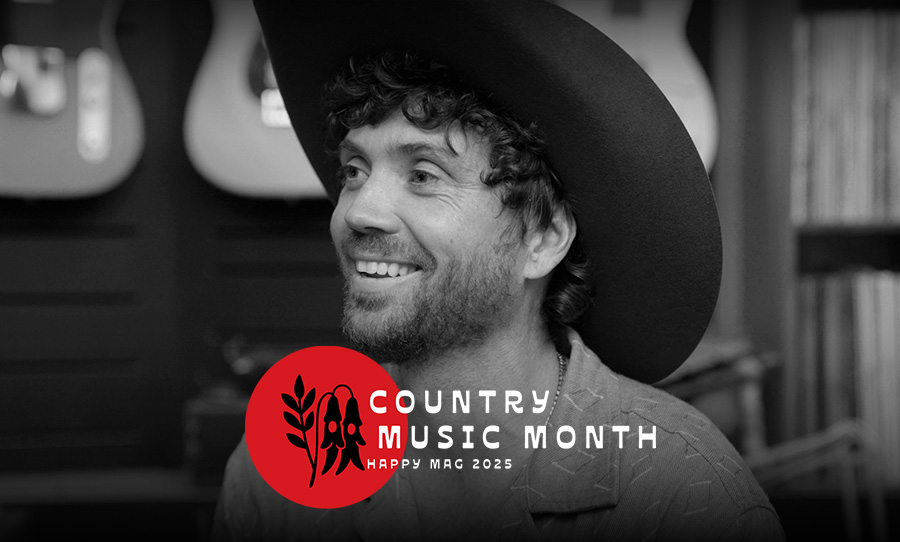During the mid-70s, it seemed Neil Young could do no wrong. Just to name a couple of Young’s albums from this period — Harvest, On the Beach, Tonight’s the Night, Zuma — the image conjured is one of flawless potential.
These are the albums that not only solidified Young’s position as a genius and rock stalwart, but they are also albums that have affected millions of people across the world. On the Beach is one of the most astonishing pieces of music ever put to vinyl. From the hope and swagger of Walk On through to the Dylan-esque lyrical journey of Ambulance Blues, Young conjures an emotional relationship between him and the listener through imagery and melody which is rarely reached. Next time you need to look for the power of music in a single album, listen to On the Beach, you’ll find more than you ever could expect.
45 years after its original recording, Neil Young’s newly unearthed album Homegrown reminds us that we must always look forward even if the present seems hopeless.
This productive period in Young’s career also turned in one of his starkest and most astonishingly bleak records to date, Tonight’s the Night. Originally recorded before On the Beach (1974), Tonight’s the Night was eventually released in 1975 to commercial and critical success. It is this album’s direct dealings with grief and the loss of Crazy Horse guitarist Danny Whitten that helped Young hone in on music as a way to express emotional trauma.
Later in 1975, Young would release Zuma, delving even deeper into the starkness an artist can achieve when pushed to the edge. It also featured one of Young’s greatest compositions, Cortez the Killer, with arguably some of Young’s greatest guitar work. In between all of these masterstrokes of perfection, Young created a wealth of material that never even saw the light of day. Back in 2017, we were gifted with Hitchhiker, a collection of unreleased acoustic songs all recorded in a single day explosion of creativity back in 1976. Some songs were eventually reworked into Crazy Horse classics (see Powderfinger) but this collection stood on its own as an extraordinary synthesis of just how capable Young was at songwriting
In between the hustle and fuss of Tonight’s the Night, On the Beach, and Zuma, Young had recorded another album’s worth of material which only now sees the light of day. This is how we come to Homegrown, the newest archival release in Young’s catalogue. The album itself was recorded in an explosion of creativity from December 1974 through to January 1975. A lot of the record’s content deals with personal issues revolving around his breakup from his then-girlfriend. A lot of this influenced the reason why it wasn’t originally released in 1975, namely the content being too personal. This comes as a little surprising seeing that the two albums released around it are easily Young’s most personal and dark albums to date.
The sound on the album draws us right back to that mid-70s Young we all know and love. It’s undeniable that if this album came out in the 70’s it would’ve been considered a classic in Young’s catalogue. Now that it is released 45 years after the fact, it still feels as fresh and gorgeous. Every song is a gem that exists within the context of one of the greatest runs of creativity in music history.
The first track on the album, Separate Ways, opens with a slow trudge of instrumentation that would’ve fit perfectly in On the Beach. We also get an instant glimpse into the personal unleashing that is this record. The first verse on the album goes as follows:
I won’t apologise
The light shone from in your eyes
It isn’t gone
And it will soon come back again
We go our seperate ways
Lookin’ for better days
Sharin’ our little boy
Who grew from joy back then
Although we are confronted with the loss of love from the get-go, there is always a little bit of hope that the future remains bright. That is what this album does so exceptionally well. Try and Mexico both attempt to deal with a breakup and disintegration in their stripped-back ways. In the end, the only end of this type of pain is time and moving forward.
Love Is A Rose was considered so good when it was originally recorded that Linda Ronstadt released her own version the same year. The opening lines, “Love is a rose but you better not pick it/It only grows when it’s on the vine” still reverberate and feel fresh all these years later. Florida is an anomaly on the record. Strange experimentation between spoken poetry and wine glasses on piano strings. It may be the most experimental and strange Young performance this side of Trans.
Some of the songs like We Don’t Smoke It feel little more than jams at the time, however, they still feel lively and fun. You can hear through all the other songs about Young’s emotional state that the band is having an absolute ball which is so rare to hear nowadays. White Line deals with cocaine in the only way Young knows how, with a sense of forgiveness and lust. However, his delivery is so gorgeous and beautiful that you can only imagine the drug as something beautiful Young can confide in. It also may be one of the most beautiful songs on the album.
Vacancy could be one of the best Neil Young & Crazy Horse tracks. The track pummels and pulls as all great Crazy Horse tracks should, showing restraint through rhythm and an emphasis on melody and dynamics.
The album’s final song, Star Of Bethlehem, encapsulates Young’s entire emotional crux during this period. Here he sings bluntly about everything going on in his private life with a sense of finality and a never-ending gaze towards the future. “Ain’t it hard when you wake up in the morning/And you find out that those other days are gone?/All you have is memories of happiness lingering on.” The past may be behind him but these experiences enlighten his gaze towards the future.
That is one of the main astonishing aspects of this record. It could have sat anywhere in Young’s career and it would’ve felt like a bridge between the past and the future. In order to look forward, you must consider what you have experienced before. The future holds just as many uncertainties as the past holds finality. This record came out at just the right time and feels perfect now as it would have done 45 years ago.
“All your dreams and your lovers won’t protect you
They’re only passing through you in the end”
To hear these words reverberate across time and space as we listen to them today, I feel a sense of looking forward through all the pain. The present is only present while it lasts, the only way forward is to understand what has come before. Homegrown is one of those astonishing albums that feels timeless on its release. It has only taken us nearly half a century to finally hear it.
In the context of the albums it was recorded around, this record stands tall. It may never reach the lofty heights of (in my opinion) Neil Young’s greatest album, On the Beach, or one of his most treasured, Tonight’s the Night, but it was never meant to. It is a snippet of true genius talking to us through the past, helping us to see that the future can only hold better days.
This album is why we love Neil Young. This album is why we must always look for hope when it seems fruitless to even try.




